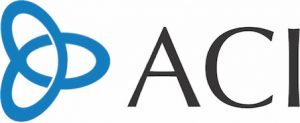New Paycheck Protection Program Guidance Eases Concerns About Repayments
The SBA provided positive feedback this week to every small business that applied for a loan through the $670 billion Paycheck Protection Program. Under PPP, borrowers are required to certify that they need funding to keep their respective businesses operational during the current coronavirus pandemic. Business owners were initially concerned about this requirement after the government indicated there might be criminal implications if it were determined a borrower didn’t actually need the cash inflow to survive.
This week the SBA eased those concerns through much-needed guidance. The SBA stated it would trust borrowers of less than $2 million if they stated that they needed the funding as a result of the “current economic uncertainty.” The specifics of the SBAs guidance can be found in question 46 on the SBA’s FAQs. “Any borrower that, together with its affiliates, received PPP loans with an original principal amount of less than $2 million will be deemed to have made the required certification concerning the necessity of the loan request in good faith.”
Good news for ACI clients
While we believe every one of our clients applied for SBA funding in good faith, ACI views the recent updates from SBA as a great relief. Effectively all of our clients who applied for a PPP loan were below the $2 million threshold, so this should mitigate the immediate concern about the potential for an SBA audit on the horizon.
We are also proud to report that every ACI client who formally submitted a loan request to the SBA was successful in both obtaining approval and receiving the funds by early May.
It should be noted that the new guidance doesn’t change the requirements for the PPP’s main benefit: Borrowers don’t have to repay the portion of the loan used for specific qualifying expenses, including payroll costs, employee benefits, rent and utilities, provided they meet the SBA criteria. We are working diligently with our clients to ensure they are able to maximize their PPP loan forgiveness in the coming weeks.
ACI working closely with FINRA and our clients
ACI Managing Partner, Jay Gettenberg, as a member of the FINRA Small Firm Advisory Committee (SFAC), is working with FINRA to address the regulatory implications for SBA loan forgiveness and how this will affect different types of broker dealers and their ability to comply with net capital requirements.
It was reported this week that about $120 billion remains available for PPP loans . If you are considering applying for the PPP program ACI is ready to help you with the process. These are the program details:
Paycheck Protection Program loans explained
The CARES Act’s Paycheck Protection Program (PPP) allows qualified businesses with fewer than 500 workers to apply for a Small Business Loan to meet payroll costs. The loan is limited to the lesser of $10 million or the company’s average total monthly “payroll costs” for the 1-year period ending on the date the loan is made, multiplied by 2.5, plus any refinanced loan under the Economic Injury Disaster Loans (EIDL) program obtained after June 30, 2020.
Proceeds from a PPP loan may be used for payroll costs (as defined), employee benefits and commissions, interest payments on mortgages, rent, utilities, and interest on debt incurred before February 15.
A business can apply for loan forgiveness in an amount equal to the cumulative amount of payroll costs, rent, utilities, and interest paid on mortgages during the eight weeks after the loan is made. The amount forgiven is limited to the extent compensation and headcount are reduced relative to a base period, and any amount forgiven will not be taxable to the borrower.
ACI will continue to provide updates on our Resources page as we manage together through this challenging time. We hope everyone is taking proactive and precautionary measures to remain safe.
